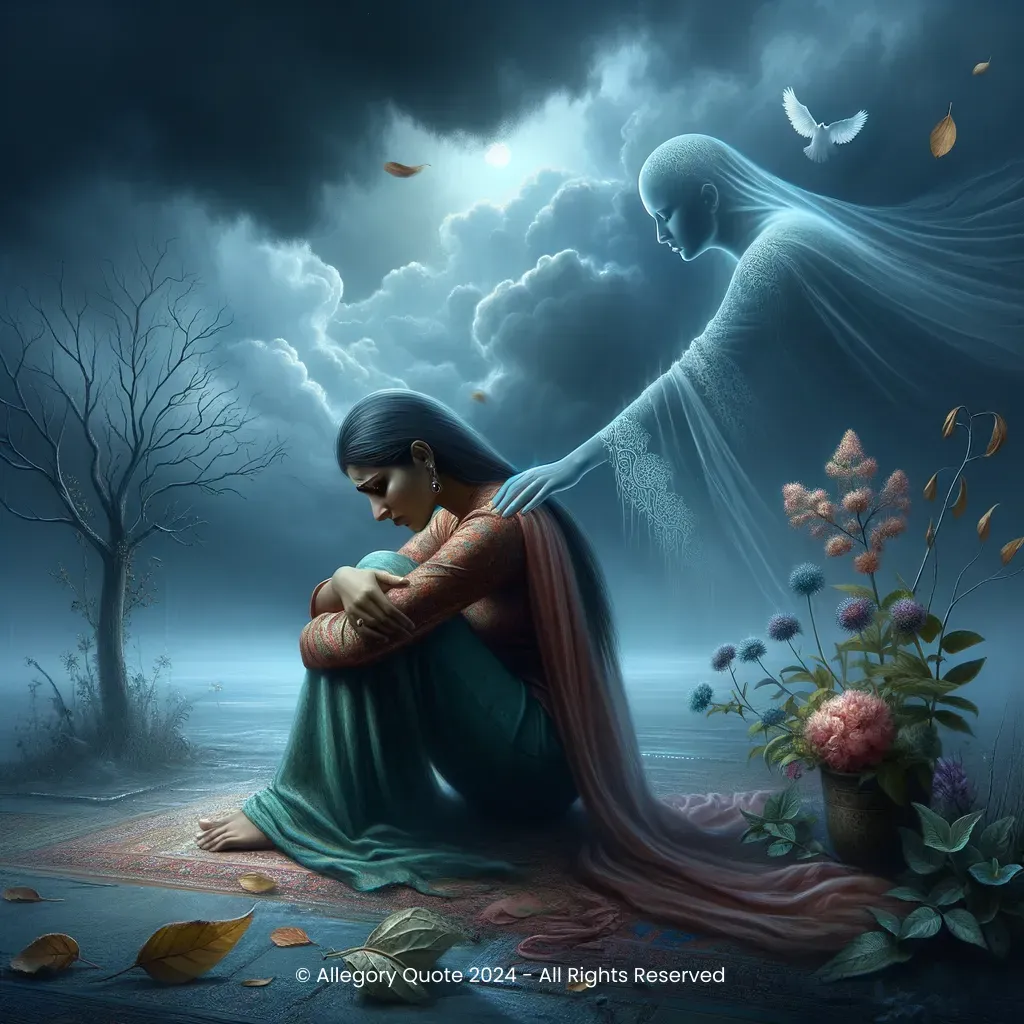Tears are the silent language of grief

0
0
0
0
- Meaning
- This phrase eloquently captures the idea that tears are a form of non-verbal communication that express deep sorrow and grief. It suggests that in moments of intense sadness, when words may fail or be insufficient, tears can convey emotions more powerfully and authentically. Philosophically, it highlights the universal human experience of using tears to express pain, loss, and sadness.
- Allegory
- In the image, the solitary figure with tears represents the universal human experience of expressing grief silently. The dark, cloudy sky sets a somber mood, while the delicate, wilting flowers and falling leaves symbolize life's transient nature and the fragility that is often realized in moments of sorrow. The ghostly figure with a comforting hand reflects unseen emotional support and the silent, empathetic connections we hold with others during times of grief. The overall atmosphere is intended to be reflective and serene, highlighting the poignant but natural process of grieving and healing.
- Applicability
- Understanding that tears serve as an expression of grief can help in showing empathy towards others. It reminds us to be sensitive to the unspoken feelings of those who are mourning or going through a tough time. In personal situations, it validates that crying is a natural and acceptable way to process and communicate one’s sorrow.
- Impact
- This phrase has had a significant cultural and societal impact as it succinctly articulates a common human experience. It has been cited in various forms of literature, films, and art to convey the profundity of grief. It also resonates in therapeutic contexts, acknowledging the legitimacy of sorrow and the role of crying in emotional healing.
- Historical Context
- The phrase likely originates from the 18th century, during the Enlightenment period when Voltaire was most active. This era emphasized reason, but also recognized deep human emotions and the complex ways in which we express them, especially in literature and philosophy.
- Criticisms
- Some may argue that relying on tears as the 'silent language of grief' could be seen as an oversimplification of grief, which can be expressed in many ways, not just through tears. Cultural differences also play a role in how grief is expressed and might challenge the universality of this statement.
- Variations
- Variations of this phrase might exist in different cultures, which often emphasize the silent and powerful nature of emotions. For example, the Japanese concept of “mono no aware,” which means a gentle sadness or awareness of the transient nature of things, resonates with the idea of silent grief.
-

Honesty is the best policy.
-

Keep your friends close, and your enemies closer.
-

Do not impose on others what you do not wish for yourself.
-

Judge not, that ye be not judged.
-

Where words fail, music speaks.
-

Parting is all we know of heaven, and all we need of hell.
-

You talk about vengeance. Is vengeance going to bring your son back to you?
-

The only way to have a friend is to be one.
-

The true test of a man's honor is his loyalty to his country.
-

The State is me.
-

If you would be loved, love, and be lovable.
-

It never rains but it pours.
No Comments